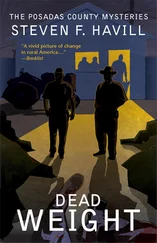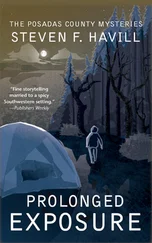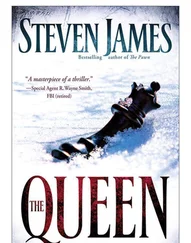Steven Levitt - Freakonomics
Здесь есть возможность читать онлайн «Steven Levitt - Freakonomics» весь текст электронной книги совершенно бесплатно (целиком полную версию без сокращений). В некоторых случаях можно слушать аудио, скачать через торрент в формате fb2 и присутствует краткое содержание. Год выпуска: 2005, ISBN: 2005, Издательство: HarperCollins Publishers Ltd., Жанр: Прочая научная литература, на английском языке. Описание произведения, (предисловие) а так же отзывы посетителей доступны на портале библиотеки ЛибКат.
- Название:Freakonomics
- Автор:
- Издательство:HarperCollins Publishers Ltd.
- Жанр:
- Год:2005
- ISBN:ISBN 0-06-083822-1
- Рейтинг книги:5 / 5. Голосов: 1
-
Избранное:Добавить в избранное
- Отзывы:
-
Ваша оценка:
- 100
- 1
- 2
- 3
- 4
- 5
Freakonomics: краткое содержание, описание и аннотация
Предлагаем к чтению аннотацию, описание, краткое содержание или предисловие (зависит от того, что написал сам автор книги «Freakonomics»). Если вы не нашли необходимую информацию о книге — напишите в комментариях, мы постараемся отыскать её.
Freakonomics — читать онлайн бесплатно полную книгу (весь текст) целиком
Ниже представлен текст книги, разбитый по страницам. Система сохранения места последней прочитанной страницы, позволяет с удобством читать онлайн бесплатно книгу «Freakonomics», без необходимости каждый раз заново искать на чём Вы остановились. Поставьте закладку, и сможете в любой момент перейти на страницу, на которой закончили чтение.
Интервал:
Закладка:
If you study the words in the ad for a real-estate agent’s own home, meanwhile, you see that she indeed emphasizes descriptive terms (especially “new,” “granite,” “maple,” and “move-in condition”) and avoids empty adjectives (including “wonderful,” “immaculate,” and the telltale “!”). Then she patiently waits for the best buyer to come along. She might tell this buyer about a house nearby that just sold for $25,000 above the asking price, or another house that is currently the subject of a bidding war. She is careful to exercise every advantage of the information asymmetry she enjoys.
But like the funeral director and the car salesman and the life-insurance company, the real-estate agent has also seen her advantage eroded by the Internet. After all, anyone selling a home can now get online and gather her own information about sales trends and housing inventory and mortgage rates. The information has been set loose. And recent sales data show the results. Real-estate agents still get a higher price for their own homes than comparable homes owned by their clients, but since the proliferation of real-estate websites, the gap between the two prices has shrunk by a third.
It would be naïve to suppose that people abuse information only when they are acting as experts or agents of commerce. Agents and experts are people too—which suggests that we are likely to abuse information in our personal lives as well, whether by withholding true information or editing the information we choose to put forth. A real-estate agent may wink and nod when she lists a “well-maintained” house, but we each have our equivalent hedges.
Think about how you describe yourself during a job interview versus how you might describe yourself on a first date. (For even more fun, compare that first-date conversation to a conversation with the same person during your tenth year of marriage.) Or think about how you might present yourself if you were going on national television for the first time. What sort of image would you want to project? Perhaps you want to seem clever or kind or good-looking; presumably you don’t want to come off as cruel or bigoted. During the heyday of the Ku Klux Klan, its members took pride in publicly disparaging anybody who wasn’t a conservative white Christian. But public bigotry has since been vastly curtailed. (Stetson Kennedy, now eighty-eight years old, attributes this evolution in some part to his long-ago “Frown Power” campaign.) Even subtle displays of bigotry, if they become public, are now costly. Trent Lott, the majority leader of the U.S. Senate, learned this in 2002 after making a toast at a one hundredth birthday party for Strom Thurmond, his fellow senator and fellow southerner. Lott made a reference in his toast to Thurmond’s 1948 campaign for president, which was built on a platform of segregation; Mississippi—Lott’s home state—was one of just four states that Thurmond carried. “We’re proud of it,” Lott told the partygoers. “And if the rest of the country had followed our lead, we wouldn’t have had all these problems over all these years either.” The implication that Lott was a fan of segregation raised enough of a fury that he was forced to quit his Senate leadership post.
Even if you are a private citizen, you surely wouldn’t want to seem bigoted while appearing in public. Might there be a way to test for discrimination in a public setting?
Unlikely as it may seem, the television game show The Weakest Link provides a unique laboratory to study discrimination. An import from the United Kingdom,
The Weakest Link for a short time became wildly popular in the United States. The game includes eight contestants (or, in a later daytime version, six) who each answer trivia questions and compete for a single cash jackpot. But the player who answers the most questions correctly isn’t necessarily the player who advances. After each round, every contestant votes to eliminate one other contestant. A player’s trivia-answering ability is presumably the only worthwhile factor to consider; race, gender, and age wouldn’t seem to matter. But do they? By measuring a contestant’s actual votes against the votes that would truly best serve his self-interest, it’s possible to tell if discrimination is at play.
The voting strategy changes as the game progresses. In the first several rounds, it makes sense to eliminate bad players since the jackpot grows only when correct answers are given. In later rounds, the strategic incentives are flipped. The value of building the jackpot is now outweighed by each contestant’s desire to win the jackpot. It’s easier to do that if you eliminate the other good players. So, roughly speaking, the typical contestant will vote to eliminate the worse players in the early rounds and the better players in the later rounds.
The key to measuring the Weakest Link voting data is to tease out a contestant’s playing ability from his race, gender, and age. If a young black man answers a lot of questions correctly but is voted off early, discrimination would seem to be a factor. Meanwhile, if an elderly white woman doesn’t answer a single question correctly and is still not voted off, some sort of discriminatory favoritism would seem to be at play.
Again, keep in mind that all of this is happening on camera. A contestant knows that his friends, family, and co-workers are watching. So who, if anyone, is discriminated against on The Weakest Link?
Not, as it turns out, blacks. An analysis of more than 160 episodes reveals that black contestants, in both the early and late rounds of the game, are eliminated at a rate commensurate with their trivia-answering abilities. The same is true for female contestants. In a way, neither of these findings is so surprising. Two of the most potent social campaigns of the past half-century were the civil rights movement and the feminist movement, which demonized discrimination against blacks and women, respectively.
So perhaps, you say hopefully, discrimination was practically eradicated during the twentieth century, like polio.
Or more likely, it has become so unfashionable to discriminate against certain groups that all but the most insensitive people take pains to at least appear fair-minded, at least in public. This hardly means that discrimination itself has ended—only that people are embarrassed to show it. How might you determine whether the lack of discrimination against blacks and women represents a true absence or just a charade? The answer can be found by looking at other groups that society doesn’t protect as well. Indeed, the Weakest Link voting data do indicate two kinds of contestants who are consistently discriminated against: the elderly and Hispanics.
Among economists, there are two leading theories of discrimination. Interestingly, elderly Weakest Link contestants seem to suffer from one type, while Hispanics suffer the other. The first type is called taste-based discrimination, which means that one person discriminates simply because he prefers to not interact with a particular type of other person. In the second type, known as information-based discrimination, one person believes that another type of person has poor skills, and acts accordingly.
On The Weakest Link, Hispanics suffer information-based discrimination. Other contestants seem to view the Hispanics as poor players, even when they are not. This perception translates into Hispanics’ being eliminated in the early rounds even if they are doing well and not being eliminated in the later rounds, when other contestants want to keep the Hispanics around to weaken the field.
Elderly players, meanwhile, are victims of taste-based discrimination: in the early rounds and late rounds, they are eliminated far out of proportion to their skills. It seems as if the other contestants—this is a show on which the average age is thirty-four—simply don’t want the older players around.
Читать дальшеИнтервал:
Закладка:
Похожие книги на «Freakonomics»
Представляем Вашему вниманию похожие книги на «Freakonomics» списком для выбора. Мы отобрали схожую по названию и смыслу литературу в надежде предоставить читателям больше вариантов отыскать новые, интересные, ещё непрочитанные произведения.
Обсуждение, отзывы о книге «Freakonomics» и просто собственные мнения читателей. Оставьте ваши комментарии, напишите, что Вы думаете о произведении, его смысле или главных героях. Укажите что конкретно понравилось, а что нет, и почему Вы так считаете.











